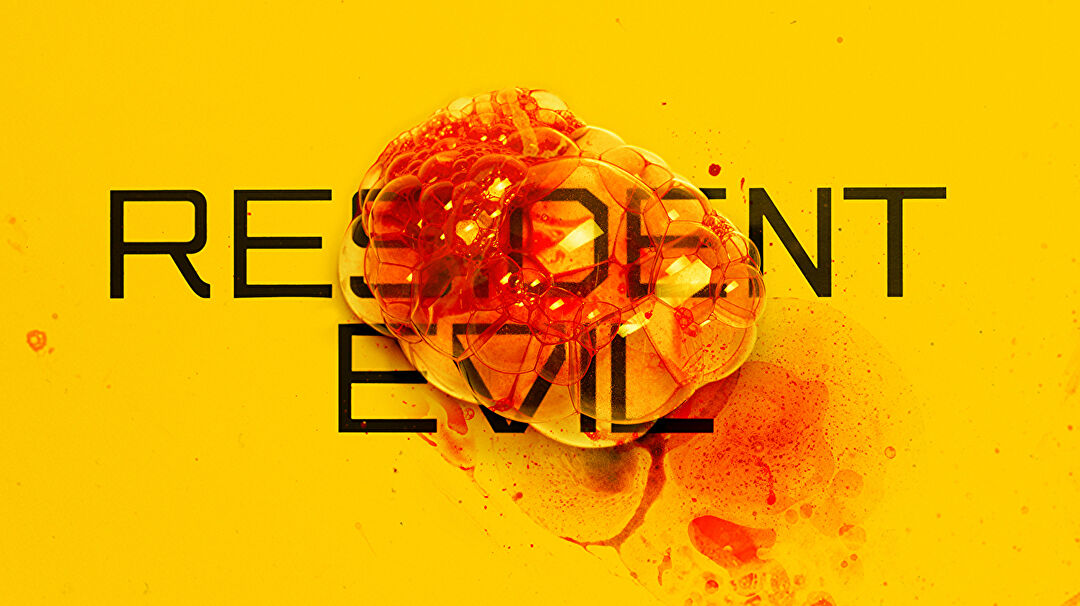
Dear reader,
Ah. Another day, another corporate broomstick shoved up the backside of source material that somebody, somewhere, at some point, used to love.
Another lovely, sunny day in the modernist beehive, praise be upon it; another low-priority push notification from a dating app we forgot to uninstall. The future’s so bright, one can hardly help but squint. But what’s this? What sweet, sweet familiar song floats down on the utopian public transportations’ exhaust fumes–so affordable—to resonate with a faint glimmer of hope still clinging inexplicably to the outside of our poor, shriveled hearts? Perhaps it won’t be so bad this time, we think. Maybe she’s not like the other girls.
Soon enough we find ourselves wandering through the drooling throngs of secular, democratic voters. Swiping ads out of our field of view; to snooze for an hour-or-so on the periphery. Two minds to a body, naturally–we’re “roommates” or something like that, the two of us here in the future–it’s more sustainable than having your own mortal coil. You wouldn’t want to be greedy would you? Think of the environment. We only need one paper straw between us, now, to sip our sugary coffees, and we produce half the waste. How enchanting.
With obedient naïveté calcifying the trace organic material remaining of our pharmaceutically addled brains, we arrive at the newest craft-soy beer dispensary, a local favorite, only to discover that despite her profile picture being Milla Jovovich’s midriff, we’ve been catfished again. This time, by the yawning gap in-between Ella Balinska’s two front teeth. Whoever that is.
Might have known.
If you’re a young writer, listen carefully. Come closer. Hear this ancient wisdom—passed down to us from our own, bronze-browed fathers in the far-distant past; when to yell “cut” wasn’t an idiom. A magical time. A time when signing a contract with a production company did not yet include that clause, that enables them to pay sleep-deprived VFX artists less than minimum wage, to attach your photo-scanned face onto a haphazardly rigged model and pilot it around—long after you’ve been shoveled over into an unmarked grave.
Here it comes: They don’t call it the silver screen because that’s what color it is before the projector whirs up, and the lights go down.
They call it the silver screen because its purpose is to reflect something to us. When we go to the theater, it’s in order to escape our dreary lives. It’s in order to see people more beautiful than us, acting more heroically than we ever really have an opportunity to act. We go to the theater to work out some inspiration, or catharsis. To contend with the futility of it all. Not to be beaten over the back of the head with it; there’s certainly plenty of that in every other nook and cranny of everyone’s lives, thank you very much. If one wanted to watch average people do average things, and muse over the pervasive average-ness of it all, one doesn’t need to pay for the privilege. The modern art museum downtown can always use a few more ticket sales.
The point of the silver screen is to see reflected in ourselves some measure of things, which we still occasion to hope are true, deep down, despite the fact that for years now, there has only been a ghastly creature leering back at us in the bathroom mirror—with a weary expression permanently etched into his cheeks. The point is to struggle and to affirm the struggle. We don’t go into the theater, as it were, to have the same commonplace, mundane misery that hangs in the air outside hawked back into our faces for a subscription fee, like you might smother grandma with the hospital pillow in a bid to expedite your inheritance.
We don’t go to be administered anesthetic, for the sake of subversive novelty. We go to the theater to feel alive–because what qualifies for living today, in the purgatory we’ve been taught to call “futuristic,” hardly cuts it anymore.
But wait, comes a protesting voice, I remain un-charmed by your curmudgeonly charms! I see through your wiggish mannerisms! Now Socrates, says the shopkeep, surely some art could be made of a slice of life. Surely there is poetry in poverty, so to speak? Yes, yes of course. But there are two problems. The first is that the invigorating mechanism of poetry does not necessarily need to include flashy explosions, per se. The second, is that while it may at times be true, it is certainly not true of Netflix’s Resident Evil.
There’s an old saying that goes, “It’s like being a mosquito at a nudist colony. It’s hard to know where to begin.” Which sweaty, fat, or blushing neck should we elect from the crowd of naked, posturing idiots, role-playing as playwrights, upon which to buzz down, land, rub our spindly little hands, and gorge ourselves on that ruby red and most-modern of nectars the gods call “shamelessness?”
It’s bad enough that the scripts sound as if they were compiled by a screenwriting AI, trained on a dataset populated exclusively with fan-fiction sourced from your little sister’s diaries. That alone makes it hard to disparage the poor actors—who were expected to perform a miracle by transmuting drivel into drama.
Worse still it is, that the ratio of time the writers ask us to spend watching characters we don’t like, talk about things we don’t care about, as compared to the amount of time we spend watching zombies have their heads fileted by scantily clad supermodels, is roughly analogous to the amount of phytoestrogens one can expect in a swig of tap-water these days. Which is to say, too much of the one; not enough of the other. On second thought, garçon, why are there pharmaceuticals in the tap-water?
Worst of all, however, is something more curious. You see, when writers make the mistake of supplying something of such competitively low quality as Resident Evil, the flimsy script often has the unforeseen effect of offering to the discerning viewer a full, and unintended view of the writer’s own insecurities. Of their most closely-held pretensions. Like throwing off your bathrobe in the privacy of your own bedroom, only to realize that the window is open. And you live in public housing. And your neighbor is Milla Jovovich, and you’re not particularly attractive. And she’s looking. Oh god, she’s looking.
For example: It’s odd that both the protagonists and the villains appear to take it for granted, that pharmaceuticals are a viable solution to most any problem. An evil executive recklessly, and cartoonishly wreaks havoc with her drugs. She does bad work, in the bad lab. Our insufferable protagonists procure protective drugs. They do good work, in the good lab. It’s never that the overreach of the industry itself is the problem—no, no. The scientist can never overreach, virtuous saint that he is, no; it’s only the nefarious malcontents meddling in his holy work that causes any issue. The industrial proclivity of so-called progressivism doesn’t underlie the zombie apocalypse; don’t be ridiculous. Corny villainy does. Left unchecked, no lab-coat could ever be well-meaning but wrong-doing at the same time. After all, we owe the development of agriculture to prehistoric scientists and their stone microscopes—not to the regard of natural mechanisms by the sympathetically minded priest-caste, right?
Right?
For the writers of Resident Evil, we only have to fight the bad science with the good science. There’s the silly sense that all it really takes is the right people involved, and then all the right things will happen. Every character behaves as if there is nothing beyond the scope of what people can adequately control with a tablet or a security camera, and therefore, we begin to see through the characters. We find our disgusted regard drawn, against our will, down through the haze of shoddy characters meticulously cast to satisfy committees and their quotas. Down, down to the naïve writer alone, where he sits. Hunched over a macbook in a Starbucks somewhere. Working on a deadline. Putting his own modern, sophomoric words in other people’s mouths and then contriving the context in which to bill them as “heroic.”
Really, there ought to be a tribunal organized for these people.
But forget the writers for a moment. We’ve just realized something: The notion that despite how good, or fair, or just one imagines oneself, attempting to contain what cannot be contained only exacerbates the problem. “Tyranny,” the stodgy old folks used to call it. How coincidental would it be, if a certain well-known video game series employed, for one of its central themes, a compelling treatment of that notion?
What if the hypothetical game was set in a corporatized future, as well? What if the writers of that game identified the contemporary pharmaceutical industry as having that tyrannical capacity to drive such a story, and wrote it for their main villain? If we could find such a game perhaps it would be worth bastardizing with a Netflix adaptation, to shake fans by the ankles for a few more subscriptions…
Ah well. You get what you pay for, as they say, and we’ve long since been running down French ships on the high, Caribbean seas–if you catch our drift. Small victories, eh lads?
–
Yours, with the salty wind in our hair,
The Aristocrats*
–
P.S.
Lance Reddick seems to be the only cast member who was able to prevail in trial-by-combat with the god-awful script. The solitary downside to casting him against-form as Albert Wesker was that, in the single instance the writers managed to manufacture for him to appear more-or-less as he was in the original Resident Evil games, he comes off looking less like Wesker, and more like he’s cosplaying Wesley Snipes’ Blade.




Lollipop Chainsaw: the movie